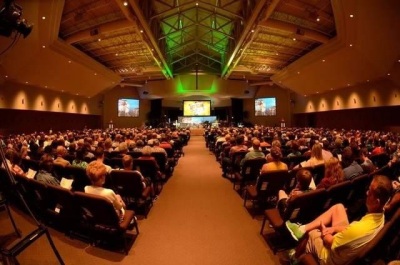Half of Protestants Agree With Catholics That Good Deeds and Faith Are Needed for Salvation: Pew

About half of Protestants in the U.S. now agree with the "historically Catholic belief" that both faith and good deeds are needed for salvation, rather than faith alone, a Pew Research Center survey shows.
White Evangelicals stood out as the strongest believers in faith alone, however.
Pew, which released the survey to mark the 500th anniversary of the Reformation, explored different questions, though one of the main focuses was on the requirements for salvation.
Fifty-two percent of U.S. Protestants said both good deeds and faith in God are needed to get into heaven; 46 percent said faith alone (sola fide) is needed. Among Catholics, 81 percent agreed that both good deeds and faith are necessary. Meanwhile, two-thirds of white evangelicals said they believe faith alone is needed for salvation.
(Catholics argue that "faith and works" is a misleading oversimplification of their beliefs.)
Protestants were similarly split on the Reformation principle of sola scriptura (which means that Scripture alone is authoritative for the faith and practice of the Christian), with 46 percent saying the Bible provides all the religious guidance Christians need and 52 percent saying Christians need guidance from church teachings and traditions in addition to the Bible. Among white evangelicals, nearly 60 percent agreed with the principle of sola sciptura.
Overall, only 30 percent of Protestants, 7 percent of Catholics and 44 percent of white evangelicals believe in both sola fide and sola scriptura.
The data for the poll was collected between May 30 and August 9, sampling 5,198 respondents, with the questions split in two forms. Pew noted that the margin of sampling error for both halves of respondents was plus or minus 2.9 percentage points.
Some respondents were asked to answer the question of what is needed to get into heaven in their own words. Common responses to this open-ended question included belief in Jesus and being born again (32 percent); being a good person, moral values and doing good works (19 percent of all Christians); repentance and asking forgiveness for sins (12 percent); and belief in God (11 percent).
In other findings, Christians were largely split on the topic of purgatory, which some believe to be a place where souls go to be cleansed of their sins before they can enter Heaven.
Overall, 54 percent of U.S. Christians rejected the existence of such a place, while 33 percent said that they believed in it. White evangelicals were most likely to say it is a false belief, with 72 percent rejecting it. Catholics found themselves at the opposite end of the scale, with 70 percent stating that purgatory is a real place. While a majority (65 percent) of Protestants overall said purgatory does not exist, black Protestants were split on the belief, with 47 percent saying it exists and 48 percent saying it doesn't.
Notably, a majority of U.S. adults were familiar with the Reformation as the time Protestants broke away from the Catholic Church and correctly named Martin Luther as the person who inspired it.
Protestants this year are commemorating the 500th anniversary of the Reformation when Martin Luther nailed his 95 theses to the door of All Saints Church in Wittenberg, Germany on Oct. 31, 1517.
According to Ligonier Ministries, while the Reformation is largely described as a movement that revolved around sola fide and sola scriptura, "the 'protest' of Protestantism went far beyond the issue of justification by faith alone, challenging many dogmas that emerged in Rome, especially during the Middle Ages."
Pew noted, "[T]he issues at the heart of the Reformation were not merely doctrinal. Disputes also arose over religious practices, ecclesiastical structures, the sale of indulgences, the expensive construction of St. Peter's Basilica in Rome, and more. Political and other factors also played an important role."
The Reformation swept through Germany in the 16th century, spread throughout Europe and then to the new world.






















